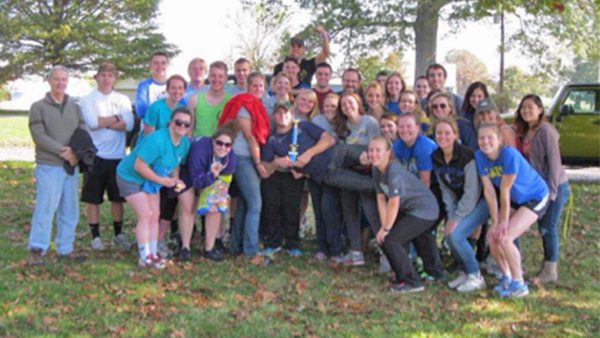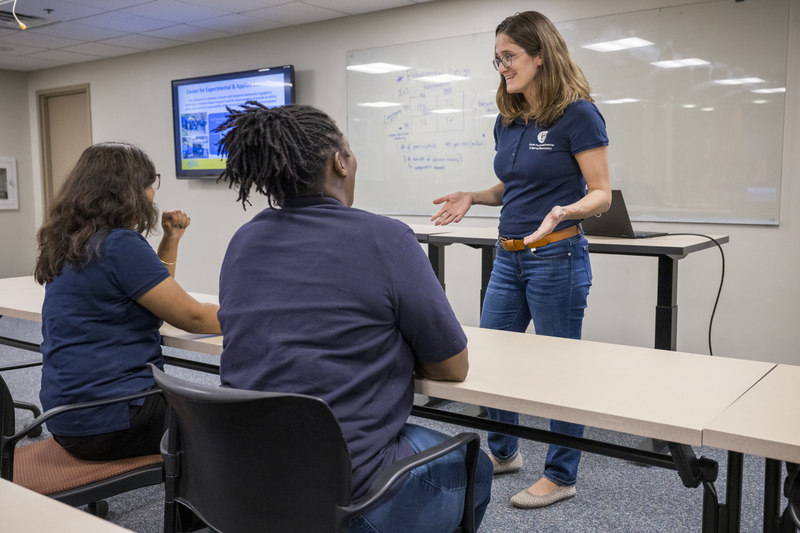
Agriculture and Natural Resources major
- About Us
- Prospective Students
- Current Students
-
Academic Departments
- Animal & Food Sciences
- Applied Economics & Statistics
- Entomology & Wildlife Ecology
- Plant & Soil Sciences
- Research & Innovation
-
Cooperative Extension
- Ask Extension
- Health & Well-being
-
Agricultural Programs
- Agribusiness
- Animal Science
- Beginning Farmer Program
- Commercial Crops
- Commericial Horticulture
- Delaware Soil Testing Program
- Disease Management
- Farm Vitality and Health Project
- Irrigation
- Nutrient Management
-
Insect Pest Management
- Insect Trapping Program
- IPM Hot Topics
- Commercial Field Crop Insect Management
- Commercial Field Crop Disease Management
- Commercial Fruit & Vegetable Crop Pest Management
- EIPM Implementation Projects
- Pollinators
- Research and Extension Demonstration Results
- Brown Marmorated Stink Bug (BMSB) Management, Research, and Resources
- Publications
- Pesticide Safety Education Program
- UD Plant Diagnostic Clinic
- Variety Trials
- Weed Science
- Certified Crop Advisor Program
- Poultry Biosecurity
- 4-H
-
Horticulture
- Climate Variability and Change
- Delaware Soil Testing Program
- Forestry
- Lawn and Garden
- Master Gardeners
- Master Naturalist Program
-
Nutrient Management
- Nutrient Management Certification
- Continuing Education for Nutrient Management
- Nutrient Management Planning Resources
- Commercial Nutrient Handler Resources
- Poultry Litter and Manure Management
- Turf Management
- Agriculture Notebook
- Horticulture Handbook
- Agriculture & Horticulture Handbooks
- Crop Production
- Soil Fertility
- Delaware Climate Change Coordination Initiative (DECCCI)
- Salt Impacted Agricultural Lands
- Carvel Center
- Alumni & Friends
Major in agriculture and natural resources at UD: youtube.com/watch?v=Z5e6BTQq_EQ
Why major in agriculture and natural resources?
We offer an interdisciplinary major with the same name as our college! There has never been a more immediate and pressing for agriculture and natural resource professionals than now. The field needs generalists to educate others, and address real-world challenges to feed the world and protect the planet. With a working farm right on main campus, students have unparalleled access to a 350-acre classroom, where they gain practical experience by actively testing their knowledge in real-world settings. Our students regularly engage with faculty from each of our college’s four departments for hands-on experiences, research opportunities and connections to industry professionals and organizations.
What is unique about this program?
Students in the major experience all that the College of Agriculture and Natural Resources has to offer. By choosing courses in Animal and Food Sciences; Applied Economics and Statistics; Entomology and Wildlife Ecology; and Plant and Soil Sciences, students gain practical experience in the various subjects that make up the field of agriculture and natural resources. Students have flexibility in their curriculum, allowing them to sample different areas while making them appealing to employers looking for graduates with diverse backgrounds in agriculture and natural resources. Agriculture and natural resources majors engage in practicial experiences inside and outside the classroom for a truly hands-on education.
This sample shows just one possible pathway to earning a bachelor of science degree in Agriculture and Natural Resources in four years. This plan does not replace the advice of your advisor.
Sample courses
The course introduces organic and sustainable farming, including the history and scientific foundations, common practices, regulations, economics and contemporary issues surrounding the organic food industry. Students will actively participate in growing crops on our Newark Farm. Professors teach the underlying biological, chemical and physical processes involved, organic certification, common field practices and the advantages and disadvantages of organics compared to conventional farming.
Providing a broad overview of today’s agriculture, course topics include diversified agricultural industries, food supply, government impact on food and fiber, the importance and impact of technology, climate, social media and workforce preparation. Through field trips, students interact with unique and diverse agriculture industry representatives throughout the region.
Instructors introduce the concept of One Health — the integration of human, animal and environmental health. The ultimate goal of One Health is prevention and early intervention, moving upstream of a health problem. Class discussion covers worldwide animal production practices, habitat destruction and other human activities, environmental changes, and the incidence of zoonotic outbreaks. Students focus on bacterial, viral and fungal zoonotic and emerging diseases like COVID-19, agriculture and the use and misuse of antibiotics in animal and human health.
Students finish the major with a culminating and integrative experience that examines critical issues facing the agriculture and natural resource fields.
Related student organizations

Alpha Gamma Rho Fraternity (AGR)
We’re a social fraternity offering a host of experiences that involve our members in the rich social fabric of college life. Additionally, we are a professional fraternity bonding our members in a common cause to better themselves as they pursue careers in agriculture. For more information, contact James Mooney.

Agriculture College Council (AgCC)
AgCC gives CANR students a sense of unity, provides events for students to meet one another and allows students to voice their opinions. AgCC encourages, initiates and conducts services which are beneficial to CANR students and promotes student-faculty cooperation to better suit student needs.

APPLY NOW
Associate Director, CANR Undergraduate Recruitment
The University of Delaware is an Equal Opportunity Institution and Provider. Visit UD’s Office of Equity & Inclusion to learn more.
Additional Links
531 South College Avenue Newark, DE 19716 (302) 831-2501
